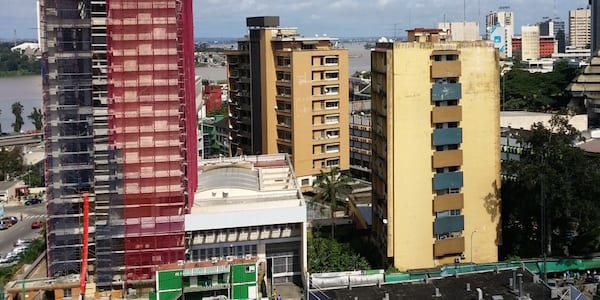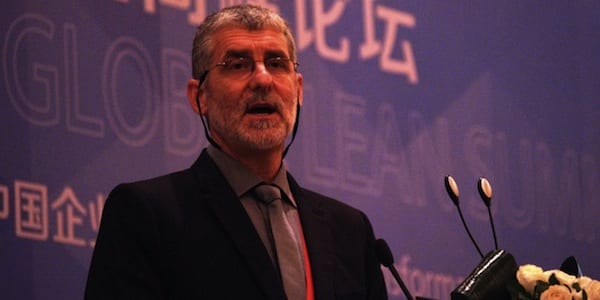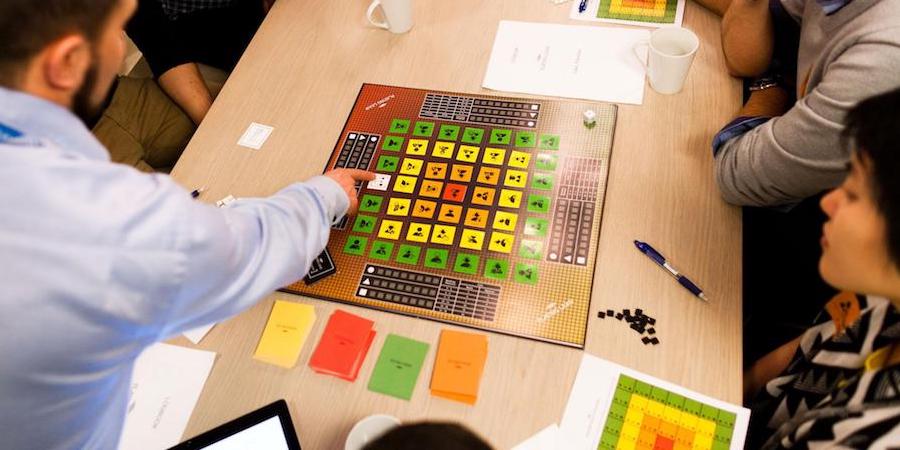
The meaning of the andon cord
OPINION – A trip to West Africa to deliver a lean workshop prompts Anton Grütter, CEO of Lean Institute Africa, to reflect on the meaning of the Andon cord.
Words: Anton Grütter, Lean Institute Africa
I recently visited Abidjan, the capital of the Ivory Coast, to speak at the first Lean Global Network-sanctioned event in that part of the African continent, and to run some Introduction to Lean workshops. I had a number of salutary experiences and I would like to share my reflections with you.
The visit took place at the height of the Ebola crisis. Together with many of my friends and colleagues, I was more than a little concerned about the risk of going there. However, the information I was able to gather from visiting the doctor at the travel clinic and from the Centre for Disease Control website indicated that no single case of Ebola had been reported in the Ivory Coast. I also learned that the virus is only transmitted by direct contact with bodily fluids. Therefore, objectively, the risk of me contracting it was actually very low. So why is there so much concern in the minds of so many people?
What gave me strength throughout this experience was reminding myself that a lean thinker practices evidence-based management.
Despite my instincts being fanned by alarmist reports in the media, all the facts indicated that I would at no point be in real danger. I survived my visit in fine shape, with some reluctance from people to shake my hand upon my return as the only thing to report.

The infrastructure around me
During my visit, I realized how badly run down Abidjan's infrastructure is (presumably the same is true for the rest of the country): central city roads have multiple potholes, manhole covers are missing on the sidewalks, few street lights work and many high-rise buildings stand empty. My hosts expressed immense sadness at the deterioration of Abidjan, a once proud city.
This structural deterioration is not unconnected to the Ebola crisis. The real killer in this crisis turns out to be the inadequate healthcare system in many parts of Africa. In first-world countries, Ebola infections rarely go beyond the second infected person because the care and quarantine systems kick in quickly. In developing countries, however, the families and healthcare workers caring for infected patients cannot rely on the health system to provide what is necessary for them to take care of themselves and ultimately survive.
If I were to translate this into the challenge of sustaining continuous improvement, the biggest lesson for me here would be that one needs to look after the lean management system if the desired outcome is to be achieved.
Stopping the line
There is a lot to do in Africa and improvement often seems to be a long way away. My host experienced many challenges before and during the event, for which I travelled to Abidjan. At one point, they ran out of money to pay the hotel where the event was taking place, because a big client had not provided payment. We arrived at the conference room one morning only to find its doors locked. We couldn't get access to the venue – in other words, hotel management had pulled the Andon cord. With workshop participants ready and waiting to start, this set off the desired effect: frantic efforts to rectify the situation.
This experience made me realize that we rarely see the line stopped when work cannot be done according to standard, especially in a service environment.
In Lean Institute Africa's public sector work we often see workarounds becoming highly problematic because they degrade the normal process for doing the work. Failure demand then increases until the system and the people in it just cannot cope anymore.

Viewed from this perspective, the Presidential Hotline (launched by President Zuma in 2009 to offer citizens information, counselling and referrals to government institutions) is a true waste in that it probably processes mostly failure demand.
I wonder what would happen if public sector staff were empowered to pull the Andon cord when they are not able to do their work properly, due to circumstances beyond their control.
Hope
Despite the difficulties we encountered even just to run a workshop, the poor state of the country's infrastructure, and the evident challenges of containing the Ebola crisis in many parts of the continent, I came back to Cape Town encouraged that there is still hope for Abidjan and the Ivory Coast.
My hosts were a small band of young, enthusiastic, well-educated Ivorian expats based in London, who - rather than remain in England - are on a mission to return to their home country and help to develop its potential. Somewhere along the way they discovered lean management and started to see it as a way to achieve this. My hope is that with their energy and an effective application of the principles of lean thinking, they will reach their target condition.
THE AUTHOR

Read more


FEATURE – Simulations and games can be extremely beneficial, so long as we use them to highlight and explain the underlying behaviors we must adopt if we are to successfully embrace lean... and not only the tools.


FEATURE – The gemba tells us more than we think. The authors discuss what we need to look at during our walks to understand the impact of non-manufacturing functions on the overall process.


INTERVIEW – Atlantis Foundries was able to achieve zero defects for three months in a row thanks to machine learning. Here’s why the human component can’t be discounted.


1 QUESTION, 5 ANSWERS – Without the active participation of people in improvement activities, lean is nothing but theory. Sadly, engaging folks is easier said than done. We asked five lean practitioners to share their approach to people engagement.

